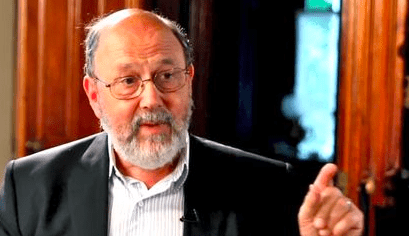 Many of us are just turned off when anyone wants to write or talk about “eschatology.” I know I usually am, and here’s why: I grew up RaptureWorld where Christian eschatology was about the Rapture, about Jesus’ returning (almost) to earth to snatch up genuine Christians, which didn’t include most who said they were Christians. Then there was the Millennium, which was designed for us genuine Christians. And the Great White Throne Judgment, and then Heaven. All in caps, but the inner core of eschatology is almost entirely left out in this scenario — like a world reborn to be shaped by peace, justice, love and wisdom — and joy and banquets (with wine) and fellowship. Like the end of death and the eternality of life. Like resurrection and reunion and union with God — forever. In other words, Christian eschatology is either hope or it is not Christian eschatology. (Tweet that.) And since eschatology has already begun in the Now, hope reshapes the present.
Many of us are just turned off when anyone wants to write or talk about “eschatology.” I know I usually am, and here’s why: I grew up RaptureWorld where Christian eschatology was about the Rapture, about Jesus’ returning (almost) to earth to snatch up genuine Christians, which didn’t include most who said they were Christians. Then there was the Millennium, which was designed for us genuine Christians. And the Great White Throne Judgment, and then Heaven. All in caps, but the inner core of eschatology is almost entirely left out in this scenario — like a world reborn to be shaped by peace, justice, love and wisdom — and joy and banquets (with wine) and fellowship. Like the end of death and the eternality of life. Like resurrection and reunion and union with God — forever. In other words, Christian eschatology is either hope or it is not Christian eschatology. (Tweet that.) And since eschatology has already begun in the Now, hope reshapes the present.
What major issues in life are addressed by Christian eschatology?
Eschatology needs to be rewritten from the angles of its substance instead of its debates, though we need to remind ourselves that a number of scholars have begun that work — like Moltmann and Pannenberg and Bauckham. I didn’t mention the debates but churches go to the mat and end up splitting over the Rapture Debate — pre-trib, mid-trib, or post-trib? Or NoTrib? And what about Modern Israel? And the League of Nations or the Euro and the European Union? OK, enough of that. On to Ronald Heine, Classical Christian Doctrine, and his nice chp on early Christian eschatology that focuses on the resurrection. What did the earliest Christians believe about resurrection? (We’ll get to the Millennium in his next, and final, chp.)
Christian eschatology begins with the resurrection of Jesus from among the dead. That body was trans-physical — physical as we now know physical yet designed for a new world order. But the first debate after the apostles was with the gnostics and the orthodox (Irenaeus, Tertullian) argued vehemently for the resurrection of the flesh vs. the gnostics who despised body. The resurrected body will be, they argued, both spirit and body. Origen differed somewhat, and he attempted to expand what was concluded before him. The soul is clothed with a body appropriate to the conditions, so that the body of the now is not the same as the body of the future (and here he focuses on immaterality as the state of the future). Origen was much closer to the gnostics. He wanted continuity, like Irenaeus and Tertullian, but emphasized immateriality more than they did. Some, Heine, argues, overdid the differences of Origen.











